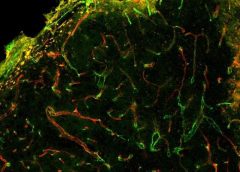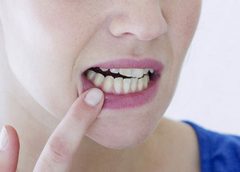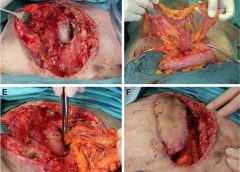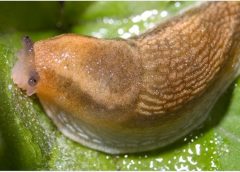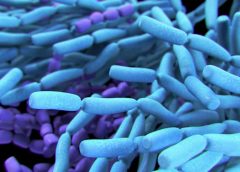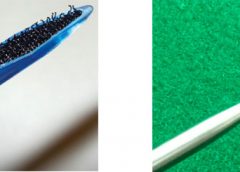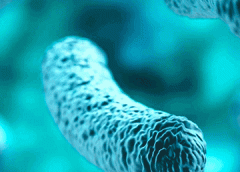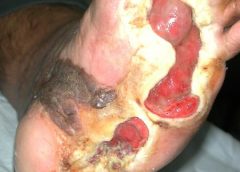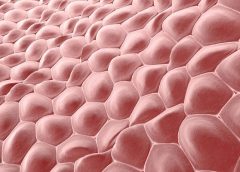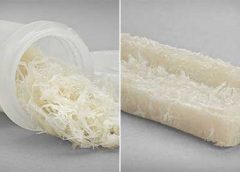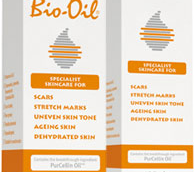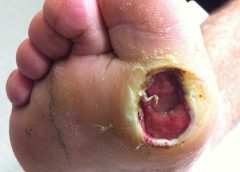A research team led by UCLA biomolecular engineers and doctors has demonstrated a therapeutic material that could one day promote better tissue regeneration following a wound or a stroke.
(more…)
Search Results for: sk
Salivary peptide promotes wound healing, research reveals
A study published online in The FASEB Journal delves into the mystifying fact that wounds in your mouth heal faster and more efficiently than wounds elsewhere. Until now, it was understood that saliva played a part in the wound healing process, though the extent of its role was unknown. The study examined the effects of salivary peptide histatin-1 on angiogenesis (blood vessel formation), which is critical to the efficiency of wound healing. Researchers found that histatin-1 promotes angiogenesis, as well as cell adhesion and migration. (more…)
Read MoreOmentum flap as a salvage procedure in deep sternal wound infection
Introduction: Deep sternal wound infections (DSWIs) are rare but devastating complication after median sternotomy following cardiac surgery. Especially in the presence of artificial material or inadequate preliminary muscle flaps, the pedicled omentum flap is due to its immunological properties, the predetermined flap in salvage procedures. (more…)
Read MoreSlugs inspire a surgical bio glue
Slugs secrete biological defensive mucus that has now inspired a new type of surgical glue, prepared by researchers. This “bio-glue” has three main properties, it can move with the body, it is incredibly strong and it can stick to wet surfaces. The results of this breakthrough are published this week in the journal Science. (more…)
Read MoreCould probiotics replace antibiotics in wound healing?
The microbiome is known to play a major role in gut health, but what about our skin? Billions of bacteria reside there, and the probiotic types may hold great potential to prevent infections during wound healing.
Our skin provides a natural barrier to the environment. This is crucial for our health, as skin protects us from invasive pathogens such as bacteria and viruses. (more…)
Read MoreCervical Biopsy more efficient, less painful via new method
Physicians evaluate new device to test for cervical cancer. Comparison of Tissue Yield Using Frictional Fabric Brush Versus Sharp Curettage For Endocervical Curettage.
Women undergoing cervical biopsies might have lower odds of repeat tests with a rotating fabric brush than a sharp instrument because the soft device may capture more cells for analysis, a recent study suggests. Furthermore, biopsies with the softer tool may be less painful, researchers say. Cervical biopsies sometimes fail to collect enough cells from the cervix to accurately test for cancer, in which case another biopsy is needed. (more…)
Read MoreScientists Seek People with Primary Progressive MS and Other Forms of MS to Study Gut Bacteria
Investigators at the University of California in San Francisco are recruiting people with MS for an international study of the gut microbiome – the population of bacteria in the gut – in MS. They are seeking people with primary progressive MS nationwide (there is no need for onsite visits), as well as people with any other type of MS who can make a one-time visit to San Francisco, New York, Boston or Pittsburgh. The overall purpose of these studies is to investigate the potential role of gut bacteria in MS.
Scientists Focus on Gut Flora for Future Treatments of Autoimmune Diseases
Read MoreGene Therapy for Non-Healing Diabetic Foot Ulcers Starts Phase III Trial
Safety and Efficacy Study of VM202 in the Treatment of Chronic Non-Healing Foot Ulcers. This study will assess the safety and efficacy of using gene therapy via intramuscular injections of the calf for patients with chronic non-healing foot ulcers.
The first patient has been dosed in a Phase III trial assessing ViroMed’s VM202, the first pivotal study of a gene therapy indicated for patients with nonhealing diabetic foot ulcers (NHU) and concomitant peripheral artery disease (PAD).
The Phase III trial (NCT02563522) is a double-blind, placebo-controlled, multicenter study designed to evaluate VM202 for safety and efficacy in 300 adults with a diabetic foot ulcer and concomitant PAD. Two hundred patients will be randomized to VM202 and the other 100 to placebo, ViroMed’s U.S. division VM BioPharma said yesterday. (more…)
Read MoreA new way of healing wounds in the future discovered by scientists
Scientists at Ohio State University have developed a new method that has the capability of changing the body’s existing cells into new cells to promote healing. The method, called Tissue Nanotransfection (TNT), reprograms cells through a device that uses nanotechnology. The way it would work: First, doctors would apply a light electrical stimulation to the surface of the skin. They would then place a small chip about the size of a cuff link onto the site of the wound. In less than a second, this chip would deliver reprogramming factors (pre-programmed DNA or RNA) non-invasively into living skin cells via a high-intensity, focused electric field, converting them into whatever type of cells a scientist or doctor may choose. (more…)
Read MoreAlloFuse® Select CM Supports Your Patient’s Healing
AlloFuse® Select CM – clinically proven to activate and support bone formation and can be used in a variety of spinal, neurologic, and orthopedic procedures.
AlloSource, one of the nation’s largest providers of cartilage, bone, skin, soft-tissue, and cellular allografts to advance patient healing in surgical procedures and wound care, today announced the release of AlloFuse® Select CM, a premium addition to AlloSource’s AlloFuse portfolio. (more…)
Read MoreBio-Oil helps self-care for wounds
Minimize scarring through new patient booklet.
A new patient resource has launched in the UK offering primary care healthcare professionals (HCPs) the opportunity to help patients self-care for their wounds and minimise scarring.
The new patient booklet resource, ‘Supporting you to care for wounds and to minimise scarring’, created with help from expert Dermatologist, Justine Hextall, and supported by Bio-Oil, has been developed following research demonstrating the the frequency that HCP’s are required to provide support to patients in primary care, with one in five (20%) being asked for advice on a weekly basis. (more…)
Read MoreWounds that won’t heal can be devastating
Carol Emanuele beat cancer. But for the last two years, the Philadelphia woman has been fighting her toughest battle yet. She has an open wound on the bottom of her foot that leaves her unable to walk and prone to deadly infection.
In an effort to treat her diabetic wound, doctors at a clinic in Northeast Philadelphia have prescribed a dizzying array of treatments. Freeze-dried placenta. Penis foreskin cells. High doses of pressurized oxygen. And those are just a few of the treatment options patients face.
“I do everything, but nothing seems to work,” said Emanuele, 59, who survived stage 4 melanoma in her 30s. “I beat cancer, but this is worse.” (more…)
Read More
